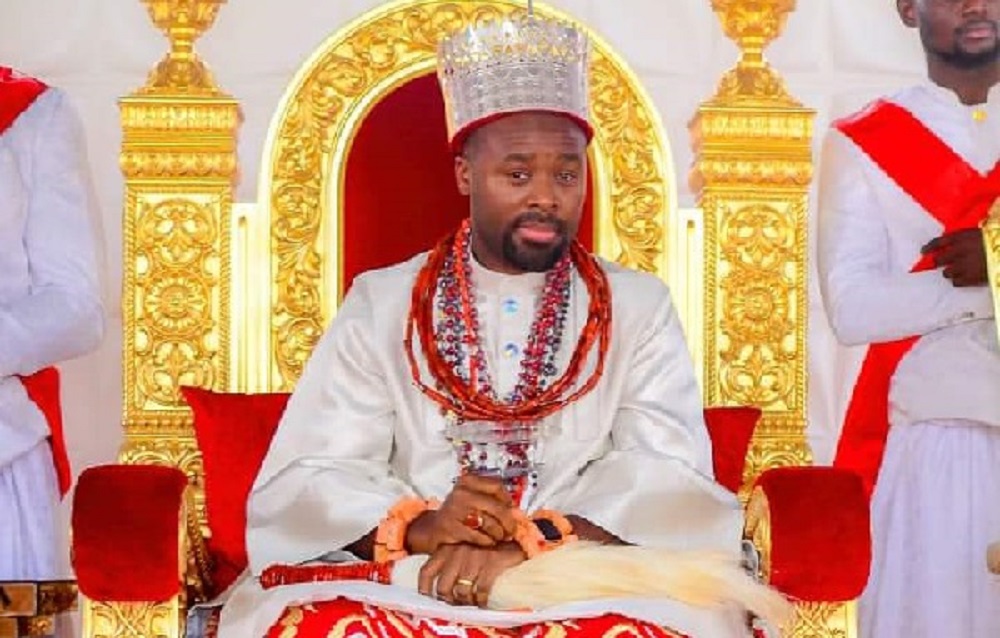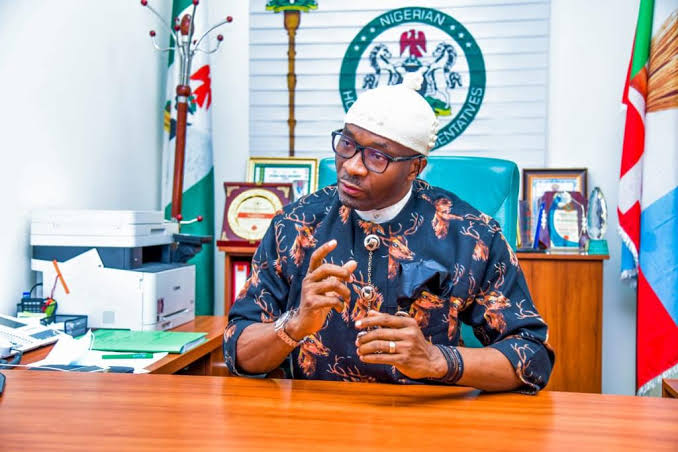News
Olu of Warri raises the alarm over ocean surge

The Office of the Representative of the Olu of Warri/Liaison to the Nigerian National Petroleum Company Limited has raised an alarm of ocean surge threatening the continued existence of some Itsekiri communities in Warri North Local Government Area of Delta State.
The Olu’s Liaison office called on the Federal Government of Nigeria, and the Delta State government as well as non-governmental organizations “to, as a matter of urgency, come to the aid of these vulnerable communities.”
This was contained in a statement from the Olu’s Liaison Office, signed by the monarch’s representative to NNPCL, Edema Collins Oritsetimeyin, copies of which were made available to journalists in Warri on Tuesday.
The statement said, “The ocean surge is already washing away several Itsekiri communities in Warri North Local Government Area.”
It listed “Ogheye Eghoroke, Orere, Ogheye Zion and Ogheye Ajadogo as the Itsekiri communities in Warri North local council that ocean surge has swept through in the past two weeks.”
The statement said that “the Itsekiri communities are facing dire situation due to relentless ocean surge that has wreaked havoc on their livelihoods, homes, schools and vital infrastructure.”
The statement partly reads, “Ugbeni Primary School, the only school in the community, had been completely washed into the ocean. Several homes, including the residence of the community leader (Olare-Aja), built in 2020 by Hon. Daniel Ireyenieju, have been lost to the advancing waters.
“Some residents, whose homes have been washed away, revealed that they are now forced to squeeze ten people into a single room for shelter.
“Most alarming is the fact that the community’s only borehole, which serves as the sole source of drinking water, has also been claimed by the ocean, leaving residents with no choice but to rely on ocean water for bathing, without access to clean drinking water.
“The situation in the neighbouring communities is worse. Ogheye Zion and Ogheye Ajadogo have been entirely submerged, with no trace of the communities’ existence.
“Efforts to reach Orere, the adjacent community to Ogheye Eghoroke, were unsuccessful due to the lack of access to a jetty, as much of the community has been swallowed by the ocean.
“Ogheye is host to Chevron’s offshore oil block, Okan Field, where oil was first discovered in 1963. For over 60 years, oil exploration activities have taken their toll on the shoreline communities. The combined effects of oil extraction and natural forces from the Atlantic Ocean have eroded the coastlines, leaving these communities more vulnerable to the encroaching ocean.
As a result, homes, schools and the livelihoods of thousands of residents, whose primary occupation is fishing, have been destroyed due to pollution, oil spills, and other harmful consequences of oil exploration activities.
“We are calling on the Federal Government of Nigeria, the Delta State government, non-governmental organizations, the United Nations, and all well-meaning individuals and organizations to come to the aid of these vulnerable communities.
The destruction of critical infrastructure such as schools, homes, and clean water sources, combined with the loss of entire communities to the ocean, has created a humanitarian crisis that demands immediate action. We also call on Chevron, given its long-standing presence in the area, to lead efforts in addressing this crisis.
“The damage caused by decades of oil exploration must be countered by meaningful action to support the communities that have borne the brunt of environmental degradation.
“This ongoing genocide must be addressed with urgency, as the future of these communities hangs in the balance. The goose that lays the golden egg should not be abandoned.”
News
A Chat with Janet Odio Okolo: A Mother’s Journey Raising a Child with Down Syndrome

News
Hon. Nnamchi Begins Street Lights Deployment In Isi Uzo(Photos)

Honourable Paul Sunday Nnamchi, representing Enugu East/Isi Uzo Federal Constituency in the 10th House of Representatives, has fulfilled his promise to illuminate communities in Isi Uzo Local Government Area.
The lawmaker has just begun the deployment of high-density solar-powered street lights in Ikem Nkwo, marking the beginning of a massive rollout of the street lamps across the communities in Isi Uzo.
This initiative, which started in Enugu East Local Government Area in 2024, aims to support the fight against insecurity in the state which according to him was to add to what Chief Security Officer of Enugu State Barrister Peter Mba had done to secure the state to attracts foreign investments.
The lawmaker expressed concern over banditry attacks, particularly by herdsmen, in some communities within Isi Uzo and Enugu East Local Government Areas in the recent pasts.
He believes that illuminating these areas with high-density street lights would help address the insecurity adding that he was prioritizing border and farming communities in Isi Uzo, where banditry has displaced residents and restricted farming activities.
Communities in Ikem, Eha-Amufu in Isi Uzo which borders Enugu and Benue State and Ugwogo-Nike in Enugu East have been vulnerable to these attacks due to their strategic locations.
News
May Day: Kalu Hails Workers, Applauds Their Role in Nation Building

By Gloria Ikibah
Deputy Speaker of the House of Representatives, Rep. Benjamin Kalu, has extended warm wishes to Nigerian workers as the country marks the 2025 edition of International Workers’ Day.
Kalu praised workers across various sectors for their commitment and resilience, describing them as the engine that keeps the nation moving. He acknowledged their sacrifices and unrelenting drive, especially during tough economic times.
In his message, he highlighted the efforts of the current administration under President Bola Tinubu to improve the welfare of public servants. He referenced the National Assembly’s prompt backing of the new minimum wage as a sign of the government’s seriousness about workers’ wellbeing.
The Deputy Speaker appealed for continued patience and understanding from Nigerians, noting that the ongoing economic reforms, while challenging, are designed to bring long-term relief and prosperity.
Kalu also called for unity, and said the country can only overcome its present difficulties if citizens and leaders work together in good faith.
He therefore urged workers to keep the faith and remain steadfast in their duties, assuring them that brighter days are on the horizon, and wished Nigerian workers a peaceful and fulfilling May Day celebration.
-

 Metro20 hours ago
Metro20 hours agoGunmen storm University of Benin teaching hospital, kill doctor
-

 Metro21 hours ago
Metro21 hours agoFCTA destroys 601 motorbikes over violations
-

 News12 hours ago
News12 hours agoAlleged money laundering: EFCC produces Aisha Achimugu in court
-

 News20 hours ago
News20 hours agoJust in: FG declares tomorrow public holiday
-

 News14 hours ago
News14 hours agoJUST IN: Major General Paul Ufuoma Omu Rtd, dies at 84
-

 News13 hours ago
News13 hours agoTinubu hails Dangote’s World Bank appointment
-

 News16 hours ago
News16 hours agoSAD! Professor’s son takes own life inside varsity staff quarters
-

 News20 hours ago
News20 hours agoFull list: FG approves N110bn to rehabilitate medical schools 18 institutions











